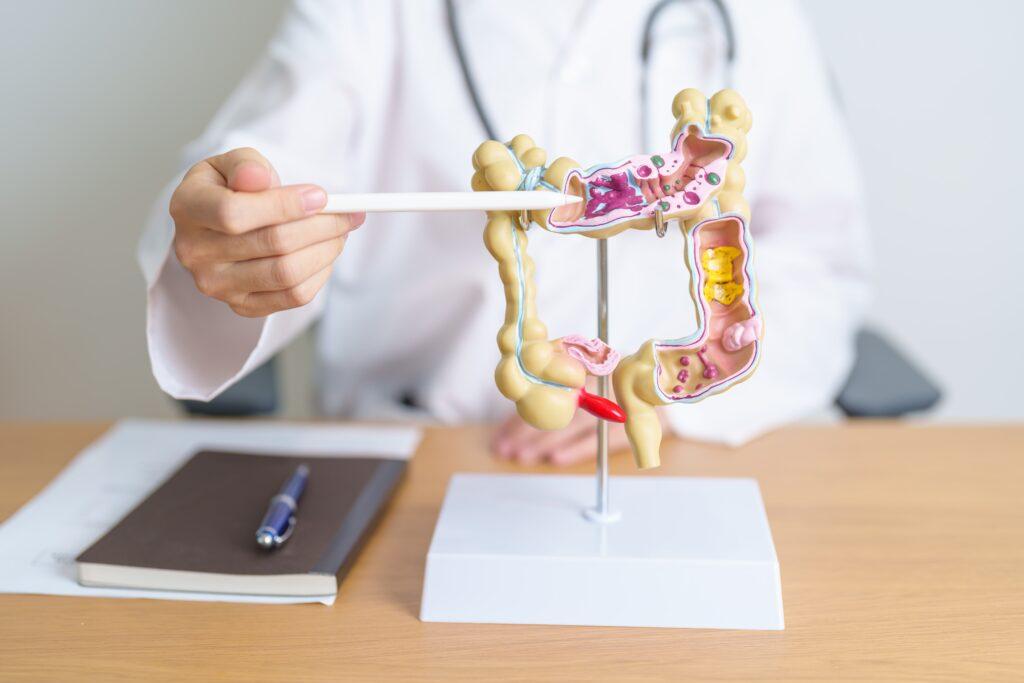
Functional Bowel Disorders
Studies have found that functional bowel disorders account for up to 40% of cases which present to gastroenterologists (specialists in the digestive / gastrointestinal system). Functional bowel disorders are diagnosed when specialists cannot find anything structurally wrong with the stomach and intestines, but the patient continues to have significant gastric or intestinal symptoms and are distressed by the symptoms.
Types
There are many different types of functional bowel disorders. The common ones include:
- Irritable Bowel Syndrome – often presents as abdominal pain for several days each month. There is usually a change in bowel habits (number of times of passing stools) and a change in quality of the feaces (e.g. more watery). The abdominal pain is relieved by passing stools.
- Functional Dyspepsia – presents as pain or a burning sensation in the upper part of the abdomen that comes with a sense of fullness. Scopes and scans do not identify any disease in the stomach.
Risk factors
A Singapore study found that functional bowel disorders affect 8.6% of the population. They are more common in females and those with childhood trauma. 40-60% of affected patients also have insomnia, anxiety (including illness anxiety) and/or depression. Treatment of these psychiatric conditions can help improve the gut symptoms.
Treatment
On top of probiotics, dietary changes and gastrointestinal medications, there is strong evidence for psychiatric medications and psychological therapy. Cognitive Behavioural Therapy (CBT) aims to change unhelpful thoughts about bodily symptoms to more adaptive ones.
Relaxation techniques and mindfulness exercises can reduce gut hyper-sensitivity. Antidepressants are effective in reducing pain and bowel symptoms – their significant beneficial effects in functional bowel disorders are no less compared to treating depression.
Seek Help Today
Call or WhatsApp us for an appointment with our psychologists or psychiatrists to determine if
stress, insomnia, anxiety or depression is worsening your gut symptoms.
This may be the case especially if your gastroenterologist did not find any serious problem that can account for the pain and bowel symptoms. Treatment is safe, effective and confidential. It can improve your abdominal pain and bowel symptoms so that you can live a better life.
This may be the case especially if your gastroenterologist did not find any serious problem that can account for the pain and bowel symptoms. Treatment is safe, effective and confidential. It can improve your abdominal pain and bowel symptoms so that you can live a better life.
Adults
- Adjustment Disorders and Stress Management
- Adult ADHD
- Anxiety Disorder
- Depression
- Eating Disorder
- Emotional Difficulties
- Expatriates and Long-Term Visitor’s Psychological Well-Being
- Functional Bowel Disorders
- Grief and Survivorship
- Insomnia and Other Sleep Disorders
- Maternal Mental Health
- National Servicemen’s Psychological Well-Being
- Neurocognitive Disorders and Dementia
- Obesity and Weight Management
- Obsessive Compulsive Disorder
- Post-Traumatic Stress Disorder (PTSD)
- Quitting
- Relationship Problems
- Schizophrenia and Delusional Disorders
- Sexuality Concerns
